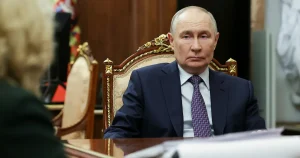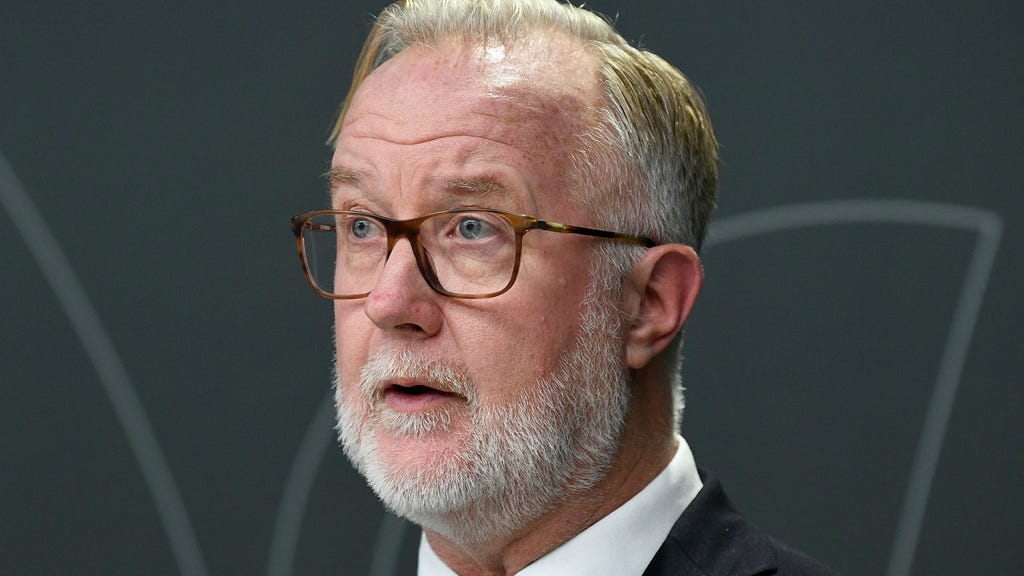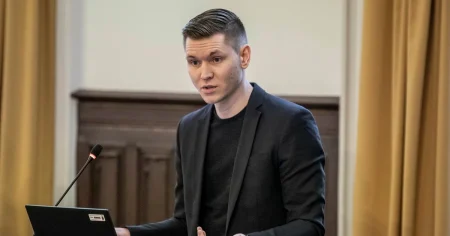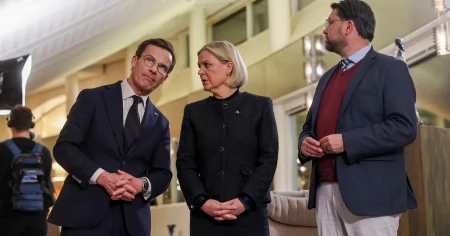On Thursday morning, Camilla Cederlöf, a member of the Liberal Party (L) in Sweden, received a disturbing video from a fellow party member. The video depicted individuals spraying red paint on the exterior of one of the Liberal Party’s offices in Eskilstuna. Cederlöf expressed her concern to the newspaper Dagens Nyheter (DN), stating that such actions against local politicians constitute a threat to democracy. The vandalism took the form of a red triangle, a symbol associated with the Qassam Brigades, the armed wing of the Palestinian organization Hamas. A pro-Palestinian activist group claimed responsibility for the act on social media, framing it as a response to the Liberal Party’s efforts to halt a student camp in Gothenburg supporting Palestine. Furthermore, the group encouraged similar actions against Liberal Party offices throughout Sweden.
The incident sparked outrage and condemnation from the Liberal Party leadership. Johan Pehrson, the party leader, expressed his dismay and called for a swift police investigation and prosecution of the perpetrators. He also assured that the party was taking precautions to safeguard its members, particularly those in Gothenburg and at the national level, in light of the heightened threat level. While Pehrson declined to specify the nature of these measures, the party’s press service linked the heightened threat to the Liberal Party’s planned public gathering in Gothenburg. This gathering, scheduled for Friday, was to take place at Vasaplatsen, the very location where a pro-Palestine tent encampment had been established since May.
The Liberal Party’s decision to hold their gathering at Vasaplatsen was not coincidental. Axel Darvik, a Liberal Party council member in Gothenburg, confirmed that one of the aims was to demonstrate that public spaces should be accessible to everyone and to uphold the city’s regulations against camping in parks. He criticized the city’s ruling red-green coalition for their inaction in addressing the ongoing encampment. Darvik expressed his concern over the vandalism, highlighting the perpetrators’ intent to intimidate local politicians through anti-democratic means, aiming to prevent them from enforcing established laws and regulations. This act of vandalism was perceived as an attempt to silence those who uphold democratic processes.
The vandalism and its connection to the Palestinian tent encampment sparked broader political reactions. Prime Minister Ulf Kristersson condemned the attack on X (formerly Twitter), labeling threats against political parties as threats against open society. Cederlöf affirmed the Liberal Party’s resolve, stating that they would not be silenced and would continue their work, albeit with increased caution. The incident highlights the tensions surrounding freedom of speech and assembly, particularly in the context of the Israeli-Palestinian conflict. The Liberal Party’s stance on the encampment, and the subsequent vandalism, underscore the challenges political parties face in navigating these sensitive issues while upholding democratic principles.
This incident reveals the complex intersection of local and international politics. The pro-Palestinian demonstration and the Liberal Party’s counter-demonstration highlight the spillover of global conflicts into local contexts. The red triangle, a symbol associated with Hamas, further underscores this connection and escalates the tension surrounding the event. The vandalism, therefore, is not merely an act of property damage, but a symbolic act with significant political implications. It represents an attempt to intimidate and silence a political party through extra-legal means, raising concerns about the health of democratic processes in Sweden.
The swift condemnation from both the Liberal Party leadership and the Prime Minister indicates a broad consensus across the political spectrum against such tactics. The focus now shifts to the police investigation and the measures taken to protect elected officials. The incident serves as a stark reminder of the importance of safeguarding democratic values and the need for continued vigilance against attempts to undermine these principles through intimidation and violence. The long-term implications of this incident remain to be seen, but it undoubtedly underscores the ongoing challenges faced by democratic societies in navigating complex political landscapes and ensuring the safety and security of their elected officials. The incident is a reminder of the fragility of democratic institutions and the constant need for their protection.














